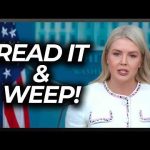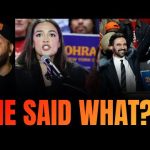On this week’s American Agenda, respected voices like Brig. Gen. Blaine Holt and former CIA officer Mike Baker warned Americans that the narco-threat we used to think was distant is now an armed, transnational danger that can reach our shores and our streets. Those conversations aren’t alarmist; they’re a sober briefing from people who’ve spent careers in uniform and intelligence, and the public has every right to hear blunt assessments from qualified professionals.
Make no mistake: Venezuela has become a hub for armed criminal networks and corrupt officials who profit from the drug trade, and Washington has responded by labeling those networks appropriately. The administration’s recent moves to designate groups tied to Caracas and to name Tren de Aragua and the so-called Cartel de los Soles reflect a long-overdue shift from wink-and-nod diplomacy to an explicit strategy of chokehold pressure.
Those designations aren’t just headlines — they’ve been followed by a real American posture in the Caribbean, including naval deployments and targeted actions intended to interdict narcotics moves that menace our communities. The reporting on U.S. strikes at suspected drug-running boats and the presence of warships off Venezuela’s coast shows this administration is willing to use muscle where diplomacy and sanctions failed. Conservatives ought to cheer resolve while insisting every action be calibrated to actually protect Americans, not theater for headlines.
Still, as Holt and Baker reminded viewers, a special military operation in or around Venezuela would be complicated and dangerous if mishandled. Cartels and state-linked actors are armed and adaptive; a reckless mission without clear objectives, lawful authorization, and post-operation plans risks turning a law-enforcement problem into a regional firefight with blowback on American lives and treasure. The right answer is not paralysis or paper virtue, it’s disciplined strength guided by strategy and American law.
Too many in the media and some judges prefer to play defense for criminals and dictators instead of defending the American people, and restrained legalism has already tied the hands of officials trying to remove violent foreign gang members from our country. Pragmatic conservatives should demand that courts respect the gravity of foreign criminal threats while Congress and the administration work together to close loopholes and speed lawful removals of bad actors. This is not xenophobia; it is border security and public safety, plain and simple.
Congress must fund the fight and stand behind commanders and agents executing it — with rigorous oversight, but no second-guessing that emboldens enemies. We should expand capacity for targeted intelligence, rapid interdiction, and proven cooperation with trustworthy regional partners while ensuring any kinetic action is limited, legal, and directed at choke points that truly cut narcotics supply to America. The lesson of recent years is clear: weakness invites chaos, and chaos bleeds into our towns.
Patriots know that protecting our families means facing hard truths and backing tough action when the threat is real. Let the left wring its hands and explain why doing nothing worked so well, while conservatives press for decisive, lawful operations that reclaim the Caribbean routes, punish corrupt regimes, and finally put American safety before political correctness. If Washington won’t lead, then the voters who love country and community must make it unmistakably clear that security is nonnegotiable.




